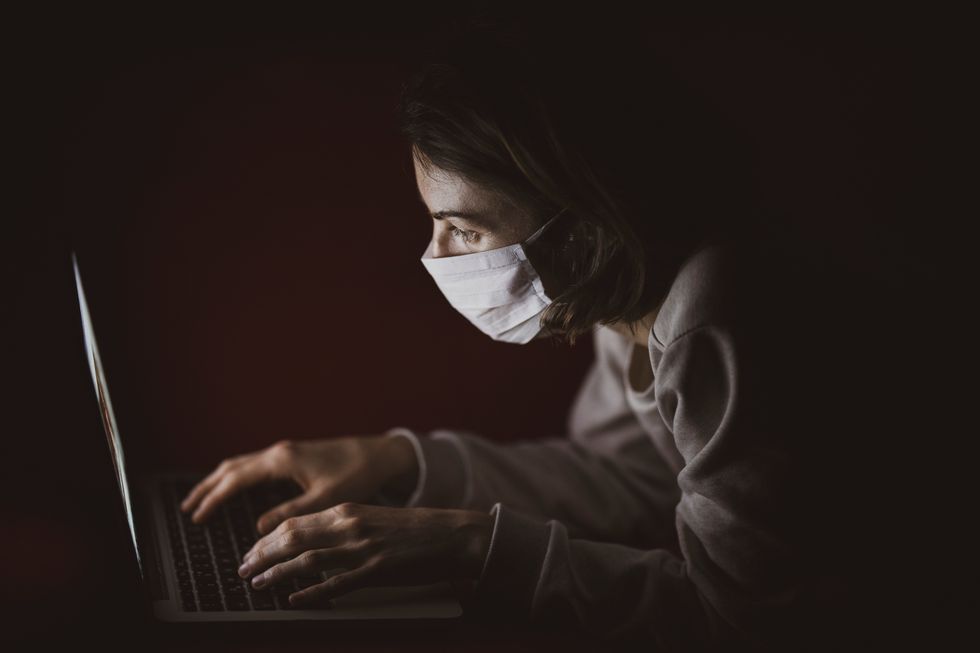In times of crisis, people look to the federal government for leadership and support. Whether it's a hurricane, earthquake or wildfire, effective and empathetic responses encourage everyone to keep moving forward. One day at a time, the nation continues to figure out a way through the coronavirus pandemic, which has led many to require federal assistance.
The House of Representatives worked along bipartisan lines to negotiate and pass the Coronavirus Aid, Relief and Economic Security (CARES) Act on March 27, which the president signed into law soon afterward. The news covered it as the most aggressive coronavirus act yet, but what does it do to help people?
Here's everything you should know about the CARES Act and how it could help you or your loved ones.
What the CARES Act Does
Lawmakers tried to include everyone in the CARES Act so no one was left without support once it passed. The law takes numerous steps to improve the nation's quality of life, which covers different sectors of the country. These are a few of the most significant ways it tackles the current issues facing the nation:
It Provides Direct Payments
Most Americans learned about the act because it created direct deposits. Taxpaying Americans could receive up to $1,200 per adult and $500 per child, depending on their income. You can calculate how much you'll receive to get more information about your specific situation.
It Addresses Unemployment
As a result of the economy shutting down to support social distancing guidelines, nearly 17 million Americans lost their full-time or part-time jobs, which provided paychecks and health insurance. The CARES Act expanded the definition of eligible workers to self-employed individuals, gig economy workers and independent contractors.
It also extended unemployment benefits until December 31, 2020, because economists see the results of the pandemic stretching well into the year. Anyone filing for unemployment will receive an extra $600 per week in addition to their state's benefits. They'll continue receiving this money if they are unemployed through the remainder of 2020.
It Aides Health Care Workers
Health care workers are on the front lines of this fight, so the CARES Act took steps to help them as well. Along with expanding telemedicine, it provides over $100 million to hospitals and smaller centers, as well as fast-track programs for treatments and vaccines.
It Helps Small Businesses
Large corporations have the resources to withstand the pandemic, but small businesses don't. When small companies shut down, they halt over 40 percent of the economy as they lay off workers. The CARES Act designated $350 billion for small business low-interest loans and grants to lessen the impact of these organizations going out of business.
Why Young People Should Care
At first, COVID-19 seemed like it affected mainly people over 55 with underlying health conditions. Young people were encouraged to go to work and maintain social distancing practices. Now evidence shows young people aren't immune to the virus or its economic effects.
A recent Axios-Harris survey found 31 percent of people ages 18-34 lost their jobs to the pandemic, compared to 15 percent to 22 percent of those older than 35. Young people are also ending up in the hospital with COVID-19. The CDC found that 24.7 percent of hospitalized coronavirus patients were aged between 18-49 years old during March, which is almost equal to the 31.1 percent of people aged 50-64.
Young people are more likely to lose their jobs and lack income and health insurance, while still being at risk for COVID-19. The CARES Act can assist them in filling these gaps, precisely because of the unemployment assistance and direct payments.
What Are the Latest Updates
People are now asking when they'll see the CARES Act begin to affect their personal lives. The latest updates address these questions, like when will unemployed individuals receive federal support. The first checks will process on Friday, April 10, and land in checking accounts during the week of April 13 at the earliest.
The $1,200 paper stimulus checks, which are different from the unemployment benefits, will start processing on May 4 and continue with an average of 5 million printed each week after that.
Although some Americans may find their checks in the mail or through direct deposit, many might not receive their money until August. The Treasury Department estimates that up to 70 million Americans will get their checks by April 15, but that leaves 110 million other people waiting for financial help.
Do Your Research
Everyone is finding a way to take one step at a time through this pandemic. Stay up to date on issues like the CARES Act to find out how you can get help. In the coming weeks, you can expect to see three future phases to provide more relief and assistance to those who need it.














